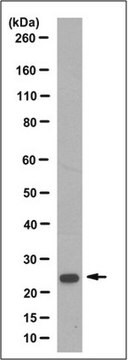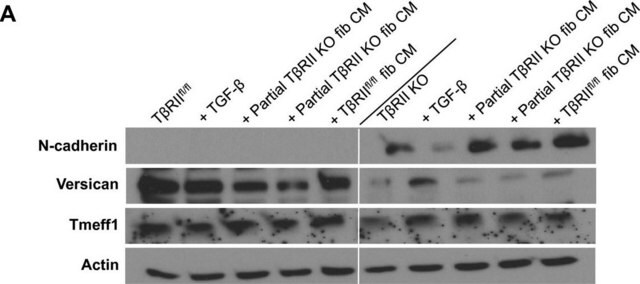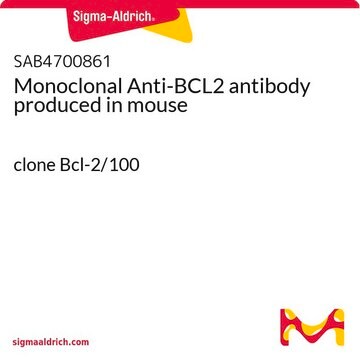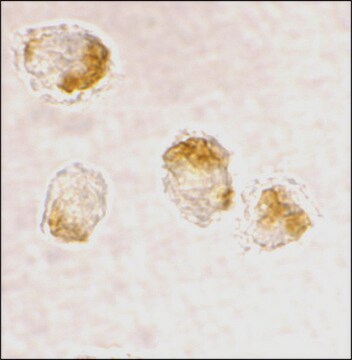B3170
Monoclonal Anti-Bcl-2 antibody produced in mouse
clone Bcl-2-100, ascites fluid
Synonym(s):
Anti-BCL-2
About This Item
Recommended Products
biological source
mouse
conjugate
unconjugated
antibody form
ascites fluid
antibody product type
primary antibodies
clone
Bcl-2-100, monoclonal
mol wt
antigen 26 kDa
contains
15 mM sodium azide
species reactivity
human
should not react with
mouse
technique(s)
electron microscopy: suitable
immunocytochemistry: suitable
immunohistochemistry (formalin-fixed, paraffin-embedded sections): suitable
immunohistochemistry (frozen sections): suitable
immunoprecipitation (IP): suitable
microarray: suitable
western blot: 1:1,000 using human HeLa cell extract
isotype
IgG1
UniProt accession no.
shipped in
dry ice
storage temp.
−20°C
target post-translational modification
unmodified
Gene Information
human ... BCL2(596)
General description
Immunogen
Application
Western Blotting (1 paper)
Biochem/physiol Actions
Disclaimer
Not finding the right product?
Try our Product Selector Tool.
recommended
Storage Class Code
10 - Combustible liquids
WGK
nwg
Flash Point(F)
Not applicable
Flash Point(C)
Not applicable
Certificates of Analysis (COA)
Search for Certificates of Analysis (COA) by entering the products Lot/Batch Number. Lot and Batch Numbers can be found on a product’s label following the words ‘Lot’ or ‘Batch’.
Already Own This Product?
Find documentation for the products that you have recently purchased in the Document Library.
Articles
Quantitative and qualitative western blotting to validate knockdown by esiRNA.
Quantitative and qualitative western blotting to validate knockdown by esiRNA.
Quantitative and qualitative western blotting to validate knockdown by esiRNA.
Quantitative and qualitative western blotting to validate knockdown by esiRNA.
Our team of scientists has experience in all areas of research including Life Science, Material Science, Chemical Synthesis, Chromatography, Analytical and many others.
Contact Technical Service








